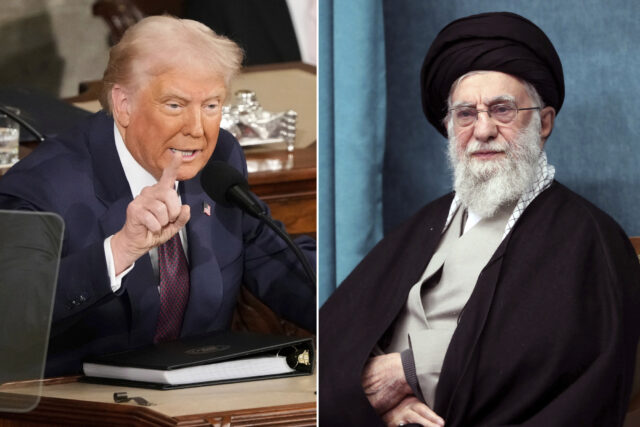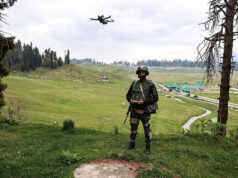
On April 12, high-level nuclear talks between the United States and Iran are set to take place in Oman, marking a significant shift in diplomatic efforts to address Iran’s nuclear program. The talks were announced by President Donald Trump, with Iran confirming that the discussions will be indirect. These negotiations come after years of strained relations, particularly following the US withdrawal from the 2015 Iran nuclear deal, also known as the Joint Comprehensive Plan of Action (JCPOA).
The Background: A Long-Standing Conflict Over Iran’s Nuclear Program
The US and Iran’s nuclear standoff has been a major issue in global diplomacy for over a decade. In 2015, the JCPOA was agreed upon between Iran and six world powers—the US, the UK, France, Germany, China, and Russia. The deal lifted sanctions on Iran in exchange for restrictions on its nuclear program, which aimed to prevent the country from developing nuclear weapons. However, in 2018, President Trump announced that the US would unilaterally withdraw from the agreement, citing Iran’s alleged violations and lack of comprehensive control over the country’s nuclear ambitions.
Since the US pulled out of the agreement, Iran has gradually resumed enriching uranium and has exceeded the stockpile limits set under the original deal. These actions have further escalated tensions and have raised concerns about a potential nuclear arms race in the Middle East.
Trump’s Warning: A High-Stakes Negotiation
President Trump has warned that failing to reach a deal with Iran in the upcoming talks would place the country “in great danger,” reiterating the US administration’s firm stance on preventing Iran from obtaining nuclear weapons. The US has been vocal about its desire to prevent a nuclear-capable Iran, with Trump emphasizing that any failure to curb Iran’s nuclear ambitions would have dire consequences not only for the Middle East but also for global security.
The talks will focus on finding a solution to Iran’s nuclear program and could have far-reaching implications for the geopolitical landscape in the region. While both sides have expressed a willingness to engage in dialogue, tensions remain high, and the negotiations will likely be fraught with challenges. The indirect nature of the talks, in which the US and Iran will communicate through intermediaries, reflects the level of mistrust that has built up between the two countries over the years.
Israel’s Role: Concerns Over Iran’s Nuclear Ambitions
Israel, a close US ally in the region, has expressed its strong concerns over Iran’s nuclear program. Israeli Prime Minister Benjamin Netanyahu has been a vocal critic of the JCPOA, arguing that the deal did not do enough to prevent Iran from eventually obtaining nuclear weapons. While Netanyahu supports diplomatic efforts to curb Iran’s nuclear capabilities, he has made it clear that military action remains an option if the talks fail to yield results.
Israel has long viewed Iran as a direct threat to its national security, and the possibility of Iran developing nuclear weapons has been a top concern for the Israeli government. Netanyahu has repeatedly stressed that the international community must not allow Iran to acquire nuclear weapons, and he has indicated that Israel may take unilateral action if necessary.
A Diplomatic Gamble: Will Talks Yield Results?
The upcoming talks between the US and Iran in Oman will be critical in determining the future of nuclear diplomacy in the region. Both sides have significant stakes in the negotiations: for Iran, the possibility of sanctions relief and an end to crippling economic sanctions; for the US, the goal of preventing Iran from acquiring nuclear weapons and securing regional stability.
However, the path to a comprehensive deal is fraught with obstacles. Iran has rejected previous offers of direct negotiations, and its nuclear advancements since the US withdrawal from the JCPOA have made the situation more complex. Both sides will need to make significant concessions to reach a lasting agreement.
The indirect nature of the talks is likely to be a major challenge, as it leaves room for miscommunication and mistrust to influence the process. Furthermore, there is skepticism within the US and among international allies about Iran’s willingness to adhere to any new agreement, given its track record of violating the terms of previous deals.
The Road Ahead: Uncertainty Looms
As the talks in Oman approach, the international community remains on edge. The success or failure of these negotiations will have lasting implications for global security, the Middle East, and the nuclear nonproliferation regime.
Trump’s administration faces intense pressure to strike a deal that can both curb Iran’s nuclear capabilities and address broader regional concerns, including Iran’s involvement in proxy conflicts across the Middle East. Meanwhile, Iran’s leadership must navigate its own internal pressures, including public dissatisfaction with the economic fallout from sanctions and the growing need for a resolution to the nuclear standoff.
While both sides appear willing to engage in diplomacy, the road ahead remains uncertain. The stakes are high, and the outcome of the Oman talks will likely shape the future of US-Iran relations and the broader dynamics of the Middle East for years to come.
In the meantime, Israeli officials are preparing for the possibility that talks could fail, and they continue to monitor Iran’s nuclear activities closely. Military action remains a last resort, but Israel’s stance on Iran’s nuclear ambitions underscores the seriousness with which the country views the potential for a nuclear-capable Iran.
The next few weeks will be pivotal in determining whether diplomacy can pave the way for a lasting resolution to one of the most complex and dangerous geopolitical issues of the 21st century.



